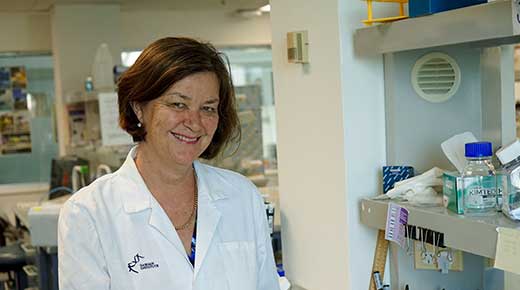
Overcoming treatment resistance in hormone-driven breast cancer
Published: 10/10/19 12:21 AM

Susan Clark
Seventy per cent of breast cancers are fuelled by the female hormone estrogen and thanks to advances in medical research and healthcare these women receive treatments, such as tamoxifen, that significantly reduce their risk of the breast cancer returning later in life.
However, around a third of women have what is called hormone treatment resistance, meaning their breast cancer doesn’t respond to treatment.
It’s a big challenge as there is currently no way to determine at diagnosis if a woman will be resistant to treatment. If she resistant to treatment, other effective options are very limited and life expectancy is short, around two years.
Overcoming treatment resistance and paving the way for better outcomes for these women is the focus of research being led by NBCF-funded Professor Susan Clark.
Professor Clark and her team aim to determine for the first time which types of genetic mutations trigger changes in the tumour DNA’s internal structure and are responsible for treatment resistance.
Her study aims to identify markers that will help tell if women are hormone treatment resistant when they are diagnosed. This information could be used to personalise the management of their care from the outset and potentially avoid women undergoing treatments that won’t work.
This research also intends to test potential avenues for effective alternative treatments for that could overcome treatment resistance and save the lives of thousands of women.

